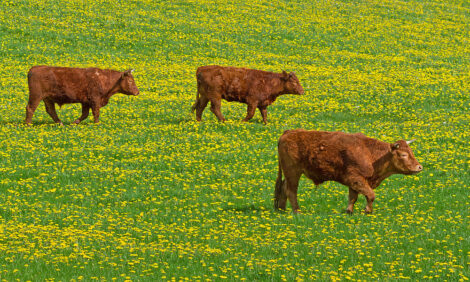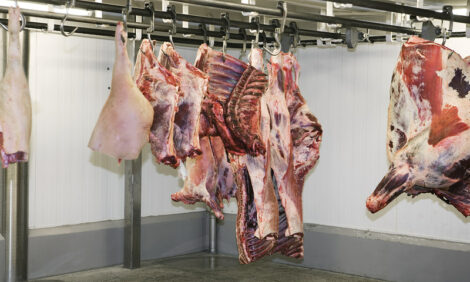



British Livestock Sector Capable of Reducing GHG Emissions
UK - The Head of SRUC’s Carbon Management Centre has said that in the future Britain could reduce its livestock greenhouse gas emissions by up to 20 per cent with the introduction of new technologies.A recent FAO report said that global livestock emissions could be decreased by 30 per cent but SRUC’s Professor Bob Rees said that while the estimate was appropriate globally, it was too high for the British market.
He said: “At the global scale there is more potential for reducing emissions than there is within the UK where farming is already pretty efficient. We’ve looked at this at SRUC and our economic analysis has shown that for zero cost, so by just improving efficiency and doing things better, we could reduce emissions in the UK by around 5 per cent. That should increase to 10-20 per cent in the future as new technologies come on stream.”
The emissions report, from the UN’s Food and Agriculture Organisation (FAO), is the most up-to-date estimate of livestock's contribution to global warming, and highlights what the sector can do to help tackle the problem.
Greenhouse gas emissions associated with livestock supply chains contribute to 14.5 per cent of all human-caused GHG emissions and there are many improvements that could see these fall significantly around the world. These include: Adoption of existing best practices and technologies in feeding, health and husbandry, and manure management – as well as greater use of currently underutilised technologies such as biogas generators and energy-saving devices.
However, Professor Rees admits that efficiencies alone will not be enough to cope with the growing environmental challenge facing the world.
He said: “We will need to bring in new technologies, precision farming for example has a lot to offer, and we will need to use improved varieties of both crops and animals. While there are things that farmers can do we also need to look at the other side of the equation, the issue of demand. We know that about a third of the food we produce globally is wasted in one way or another and cutting down on that would have a big impact on emissions.”
Both the issue of agricultural emissions, and that of food waste, are becoming increasingly important as demand for food increases.
Dr Mike McLeod, an SRUC researcher who contributed to the FAO report, believes there will be a rising consumer demand for livestock-based products such as meat, milk and eggs.
He said: “We are likely to see increases in global demand for livestock commodities (such as meat, milk and eggs) of between 50 per cent and 100 per cent between now and 2050. Meeting this demand without increasing the impact on the environment represents a huge challenge for industry, governments and consumers.”
TheCattleSite News Desk


